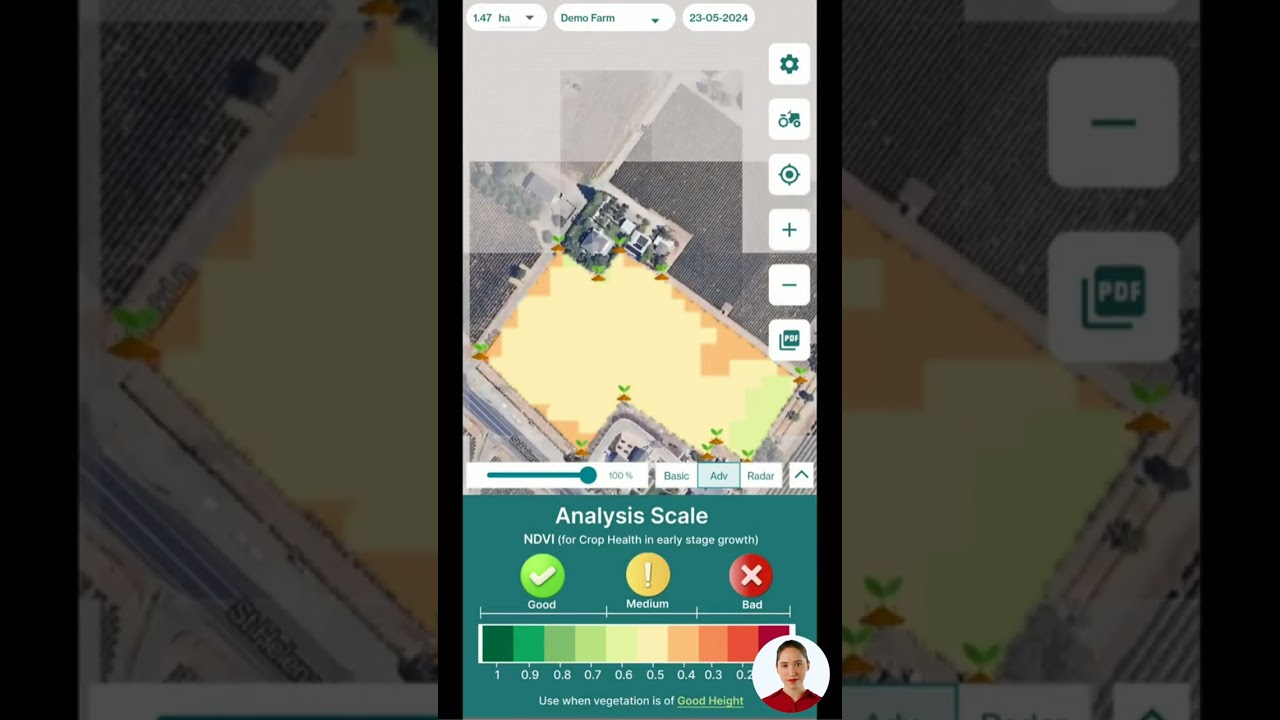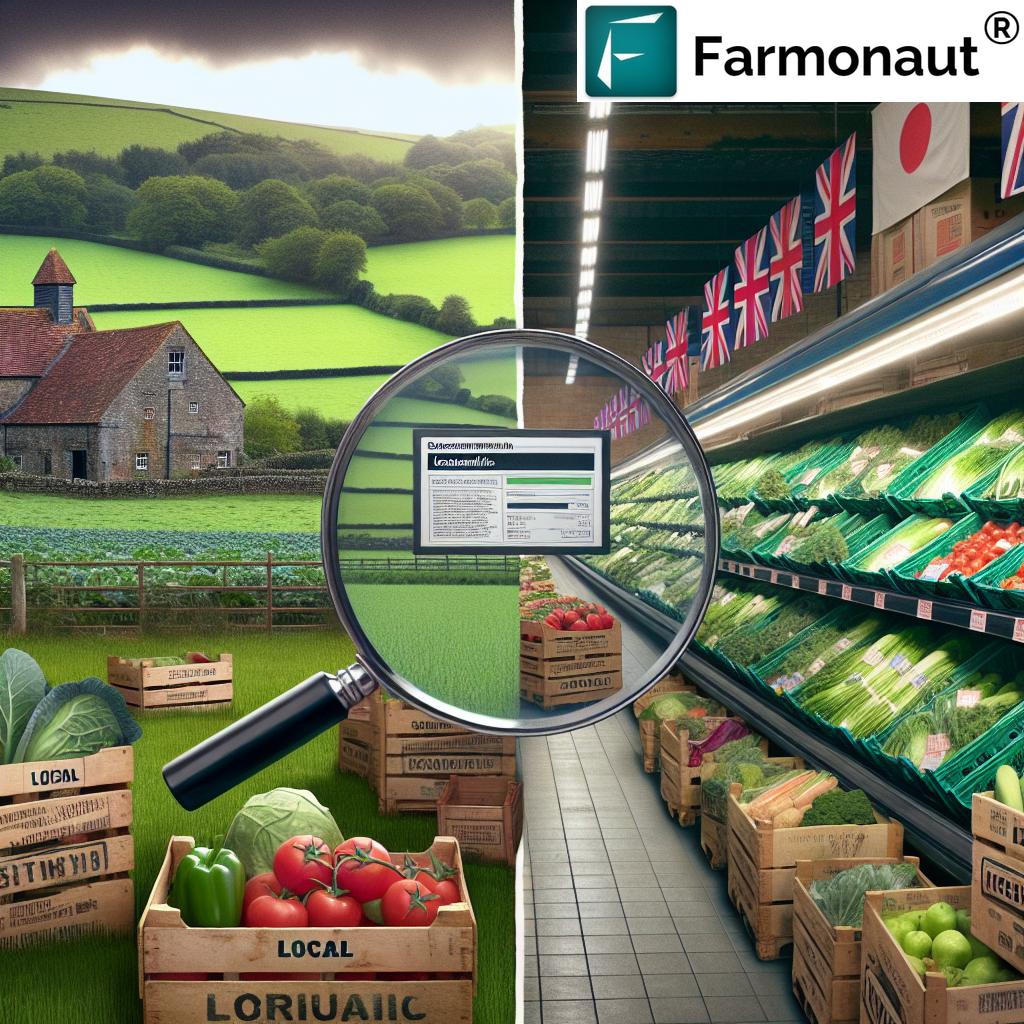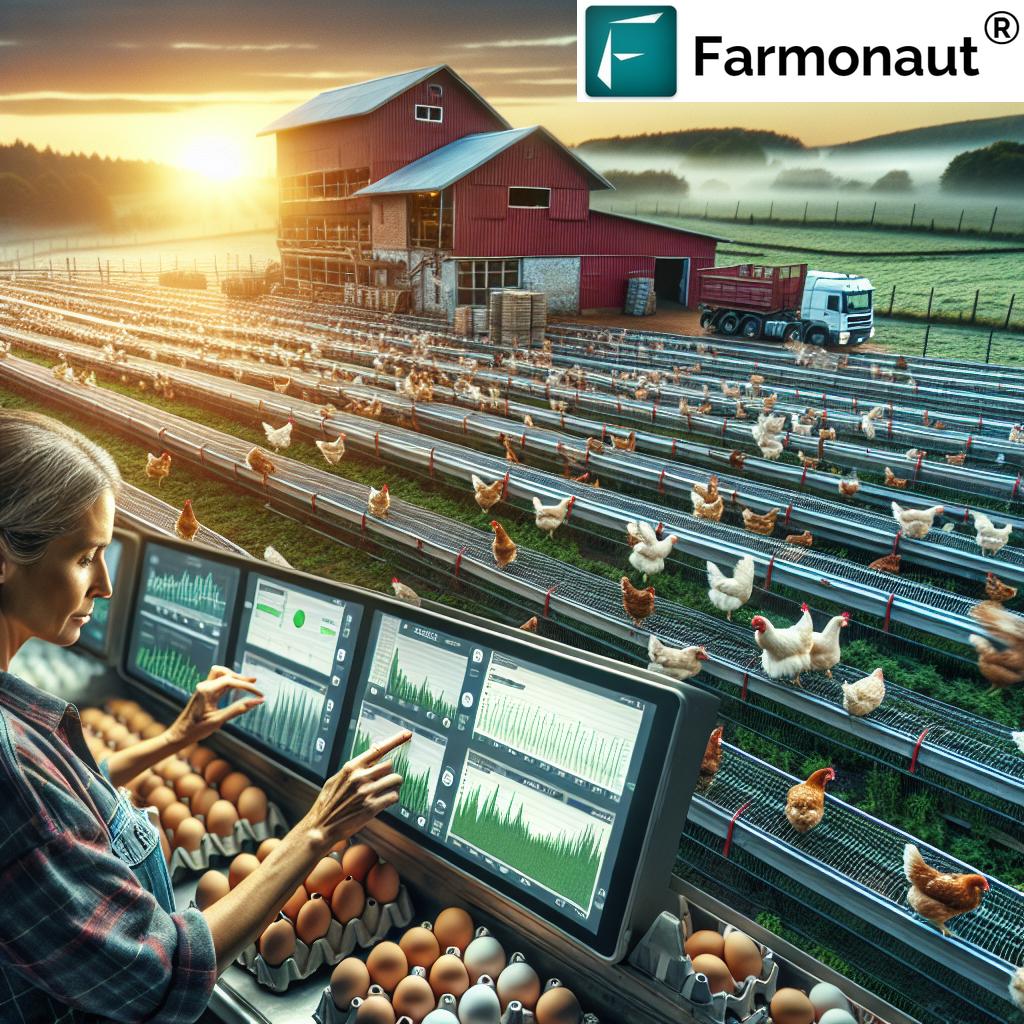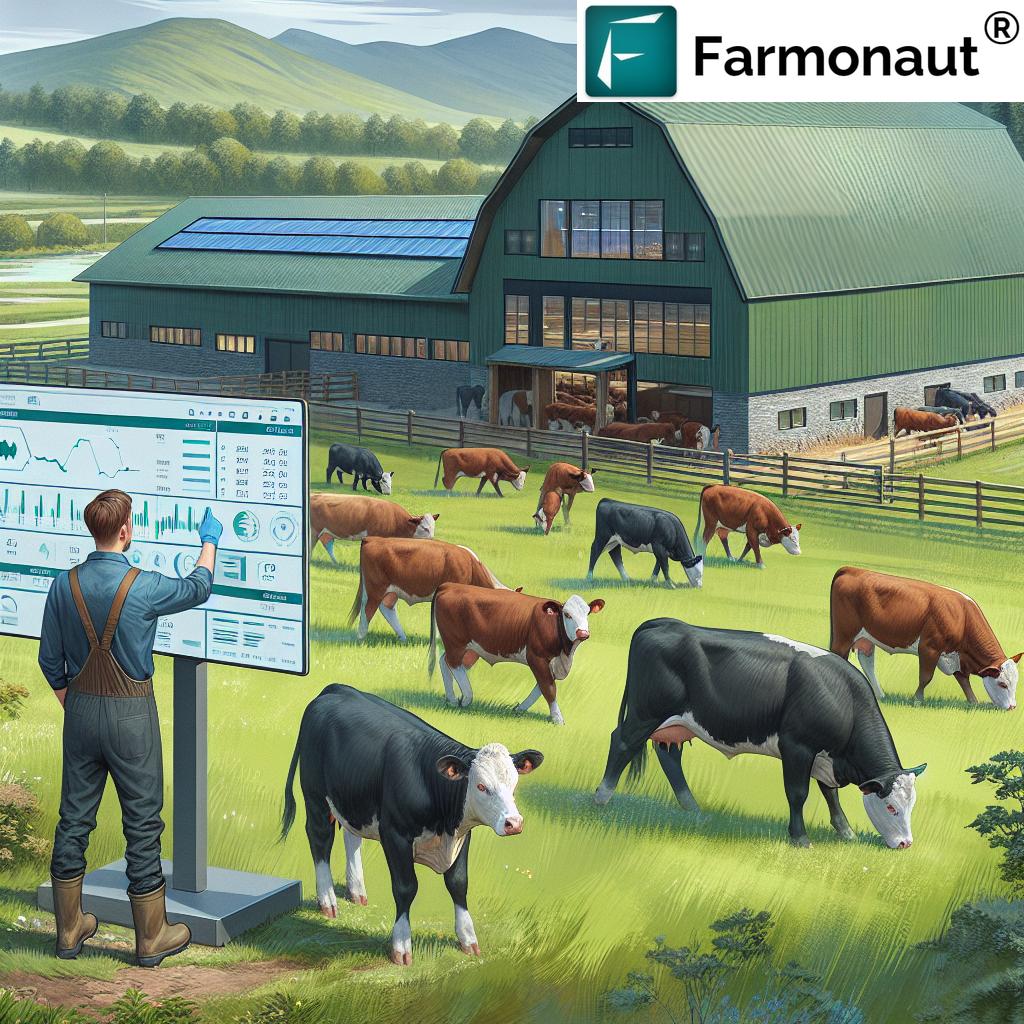UK Dairy Industry Trends: Navigating Milk Pricing Strategies and Farm Business Sustainability
“UK dairy farmers face challenges as currency fluctuations impact milk prices, affecting over 11,000 dairy holdings nationwide.”
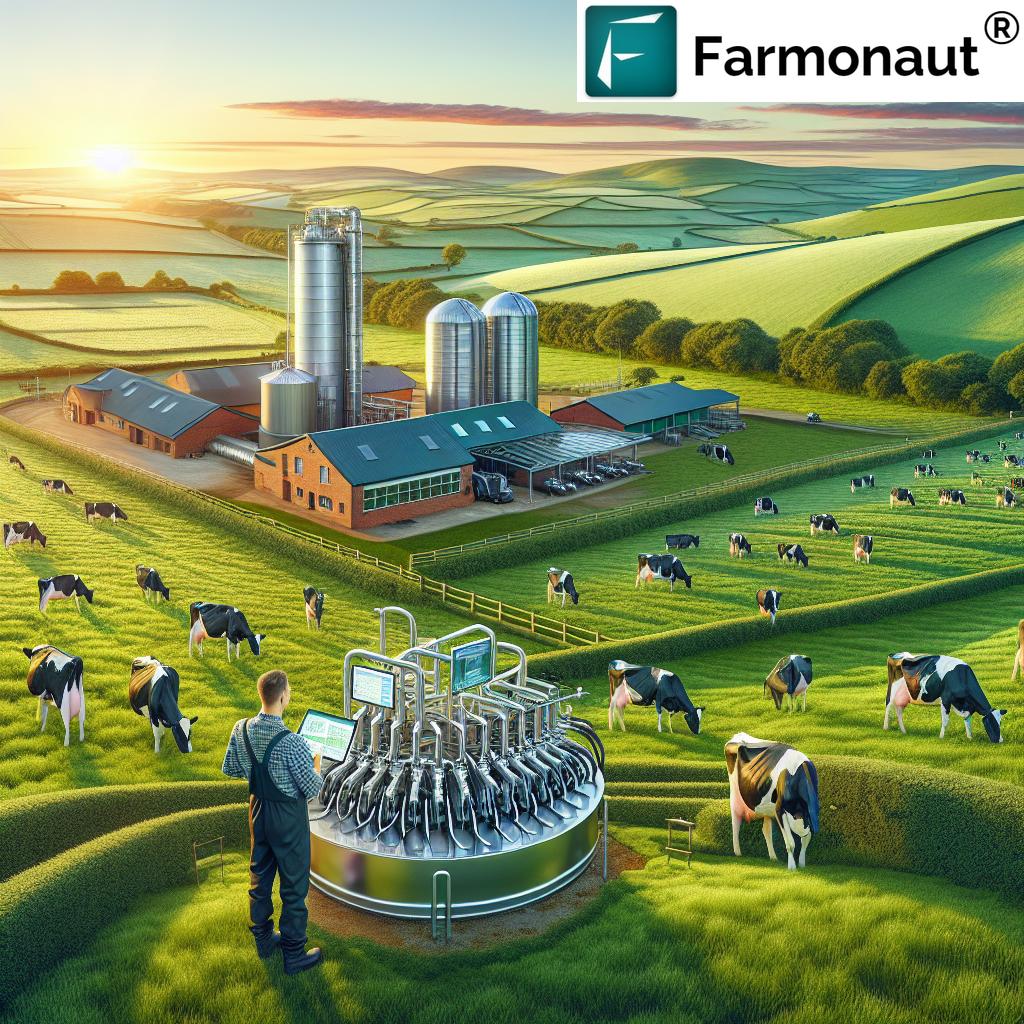
In the ever-evolving landscape of UK agriculture, the dairy industry stands at a crossroads, facing unprecedented challenges and opportunities. As we delve into the intricate world of milk pricing strategies and farm business sustainability, we at Farmonaut recognize the critical need for farmers to stay informed and adaptable. Our comprehensive analysis aims to shed light on the current trends shaping the UK dairy sector, offering valuable insights for both seasoned farmers and newcomers to the industry.
The Current State of UK Dairy Farming
The UK dairy industry, a cornerstone of British agriculture, is undergoing significant transformations. With over 11,000 dairy holdings across the nation, from the rolling hills of Wales to the lush pastures of Scotland, the sector plays a vital role in the country’s economy and food security. However, recent years have seen a shift in the dynamics of dairy farming, influenced by a myriad of factors including:
- Fluctuating milk prices
- Changing consumer preferences
- Environmental regulations
- Technological advancements
- Global market pressures
These elements collectively shape the strategies employed by dairy farmers across the UK, forcing many to reassess their approaches to farm management and business sustainability.
Milk Pricing Strategies: A Balancing Act
At the heart of the dairy industry’s challenges lies the complex issue of milk pricing. The volatility of milk prices has become a significant concern for farmers, with fluctuations impacting farm incomes and long-term planning. Several factors contribute to this volatility:
- Currency Fluctuations: The value of the pound significantly affects export competitiveness and import costs.
- Global Supply and Demand: Overproduction or shortages in major dairy-producing countries can ripple through the UK market.
- Seasonal Variations: Milk production naturally fluctuates throughout the year, affecting supply and prices.
- Retail Pressures: Supermarket pricing strategies can squeeze profit margins for farmers.
To navigate these challenges, UK dairy farmers are adopting various pricing strategies:
- Forward Contracts: Some farmers are entering into agreements with processors to lock in prices for a set period, providing stability but potentially limiting upside gains.
- Diversification: Many are exploring value-added products like artisanal cheeses or yogurts to increase profit margins.
- Cooperative Models: Joining farmer-owned cooperatives can provide better negotiating power and more stable pricing structures.
- Cost Management: Implementing efficient farming practices to reduce production costs and improve profitability regardless of market prices.
The Role of Technology in Modern Dairy Farming
In the face of these challenges, technology emerges as a crucial ally for UK dairy farmers. Advanced farming equipment and digital solutions are revolutionizing the industry, offering new ways to optimize operations and increase profitability. At Farmonaut, we’re at the forefront of this technological revolution, providing farmers with cutting-edge tools to enhance their decision-making processes.
Our satellite-based farm management solutions offer real-time insights into crop health, soil moisture levels, and weather patterns, enabling farmers to make informed decisions about grazing management and feed production. By leveraging these technologies, dairy farmers can:
- Optimize grazing rotations for maximum yield and nutritional value
- Predict and mitigate the impacts of adverse weather conditions
- Improve feed quality and reduce reliance on expensive imported feeds
- Monitor pasture health and implement timely interventions
To explore how Farmonaut can transform your dairy farm management, visit our web application or download our mobile apps:
Sustainable Practices in UK Dairy Farming
Sustainability has become a cornerstone of modern dairy farming in the UK. With increasing pressure from consumers and regulators to reduce the environmental impact of agriculture, farmers are adopting innovative practices to ensure the long-term viability of their operations. Some key sustainability trends include:
- Regenerative Agriculture: Implementing practices that improve soil health, increase biodiversity, and sequester carbon.
- Water Management: Adopting efficient irrigation systems and water recycling techniques to reduce water usage.
- Renewable Energy: Investing in solar panels, wind turbines, and biogas digesters to reduce reliance on fossil fuels.
- Precision Farming: Utilizing data-driven approaches to optimize resource use and minimize waste.
Farmonaut’s technology plays a crucial role in supporting these sustainable practices. Our satellite imagery and AI-powered analytics help farmers:
- Monitor crop health and identify areas requiring attention
- Optimize fertilizer and pesticide application to reduce environmental impact
- Track carbon sequestration efforts and quantify environmental benefits
- Implement precision agriculture techniques for more efficient resource use
For developers interested in integrating these powerful tools into their own agricultural solutions, explore our API and API Developer Docs.
The Impact of Brexit on the UK Dairy Industry
The UK’s exit from the European Union has introduced new challenges and opportunities for the dairy sector. Brexit has significantly impacted trade relationships, regulatory frameworks, and labor availability. Key considerations for dairy farmers in the post-Brexit landscape include:
- Trade Agreements: New trade deals with non-EU countries could open up new export markets for UK dairy products.
- Regulatory Changes: Adapting to new UK-specific regulations on food safety, animal welfare, and environmental standards.
- Labor Shortages: Addressing the reduced availability of EU workers in the dairy sector.
- Currency Fluctuations: Managing the impact of pound sterling volatility on export competitiveness and input costs.
In this evolving landscape, staying informed about agricultural news and industry trends is more crucial than ever. Farmonaut’s platform provides regular updates on market conditions, policy changes, and technological advancements, helping farmers make informed decisions in a post-Brexit world.
Diversification: A Strategy for Resilience
“Cooperative farming models in the UK dairy sector have grown by 15% in the last 5 years, adapting to market volatility.”
Diversification has emerged as a key strategy for UK dairy farmers looking to increase resilience and profitability. By expanding beyond traditional milk production, farmers can create new revenue streams and reduce their exposure to market volatility. Popular diversification strategies include:
- On-Farm Processing: Producing cheese, yogurt, ice cream, or other value-added dairy products.
- Agritourism: Offering farm stays, educational tours, or on-site cafes to capitalize on the growing interest in rural experiences.
- Renewable Energy Projects: Installing solar panels or wind turbines to generate additional income and reduce energy costs.
- Crop Diversification: Introducing new crops or livestock to spread risk and tap into different markets.
Farmonaut’s technology supports diversification efforts by providing comprehensive data on land use, crop health, and resource allocation. Our tools can help farmers:
- Identify suitable areas for new crop varieties or livestock pastures
- Monitor the health and productivity of diversified operations
- Optimize resource allocation across different farm enterprises
- Track the performance of renewable energy installations
Financial Planning and Risk Management
Effective financial planning and risk management are essential for the long-term sustainability of dairy farms in the UK. With the industry facing unpredictable market conditions and increasing production costs, farmers must adopt robust financial strategies. Key aspects of financial planning for dairy farmers include:
- Budgeting and Forecasting: Developing detailed financial projections to anticipate cash flow needs and potential challenges.
- Cost Control: Implementing efficient practices to manage production costs without compromising on quality or animal welfare.
- Investment Planning: Strategically allocating resources for farm improvements, new technologies, or diversification projects.
- Risk Management Tools: Utilizing futures contracts, insurance products, and government support schemes to mitigate financial risks.
Farmonaut’s platform contributes to better financial planning by providing accurate, real-time data on farm performance. Our tools help farmers:
- Track productivity metrics to inform budgeting decisions
- Identify areas for cost savings through efficient resource use
- Evaluate the potential return on investment for new technologies or practices
- Monitor key performance indicators to support informed decision-making

The Role of Cooperatives in the UK Dairy Sector
Cooperative models have gained significant traction in the UK dairy industry, offering farmers collective strength in negotiating prices, sharing resources, and accessing markets. The 15% growth in cooperative farming models over the past five years underscores their importance in adapting to market volatility. Benefits of joining a dairy cooperative include:
- Enhanced bargaining power with processors and retailers
- Shared investment in processing facilities and marketing initiatives
- Access to broader markets and export opportunities
- Collective risk management and support systems
Farmonaut’s technology can support cooperative efforts by:
- Providing aggregated data on production levels and quality metrics across member farms
- Facilitating resource sharing and optimization among cooperative members
- Offering insights into market trends and consumer preferences to inform collective strategies
Embracing Organic Dairy Production
The demand for organic dairy products has been steadily increasing in the UK, presenting an opportunity for farmers to tap into premium markets. Transitioning to organic production requires significant changes in farm management practices but can offer several benefits:
- Higher milk prices and more stable contracts
- Reduced reliance on expensive inputs like synthetic fertilizers and pesticides
- Improved soil health and biodiversity on the farm
- Alignment with consumer preferences for sustainable and ethical food production
Farmonaut’s satellite-based monitoring tools are particularly valuable for organic dairy farmers, helping them:
- Monitor pasture health without relying on synthetic inputs
- Identify and address pest or disease issues early through regular crop health assessments
- Optimize grazing rotations to maintain soil health and maximize natural forage production
- Demonstrate compliance with organic certification requirements through detailed land management records
The Future of UK Dairy: Innovations and Trends
As we look to the future of the UK dairy industry, several emerging trends and innovations are set to shape the sector:
- Robotics and Automation: Increased adoption of robotic milking systems and automated feeding technologies to improve efficiency and address labor shortages.
- Data-Driven Decision Making: Greater reliance on big data and analytics to optimize all aspects of dairy farm management.
- Alternative Protein Sources: Exploration of plant-based and lab-grown alternatives, potentially impacting traditional dairy markets.
- Climate-Resilient Farming: Development of strategies and technologies to adapt to changing climate conditions and reduce environmental impact.
- Blockchain in Supply Chains: Implementation of blockchain technology to enhance traceability and transparency in dairy supply chains.
Farmonaut is committed to staying at the forefront of these innovations, continually evolving our platform to meet the changing needs of UK dairy farmers. Our focus on satellite technology, AI, and data analytics positions us to support farmers in embracing these future trends.
UK Dairy Industry Pricing Comparison
| Region | Average Milk Price (pence per litre) | Year-on-Year Price Change (%) | Production Costs (estimated £ per cow) | Farm Sustainability Score (1-10 scale) | Primary Cooperative Model |
|---|---|---|---|---|---|
| Wales | 32.5 | +3.2% | 2,100 | 7 | Regional Milk Cooperatives |
| Scotland | 33.1 | +2.8% | 2,250 | 8 | Farmer-Owned Processors |
| England (South West) | 31.8 | +2.5% | 2,050 | 6 | Mixed Cooperative Models |
| England (North) | 32.2 | +3.0% | 2,150 | 7 | Large-Scale Marketing Cooperatives |
| Northern Ireland | 30.9 | +2.2% | 1,950 | 6 | Cross-Border Cooperatives |
This table provides a snapshot of the dairy industry across different UK regions, highlighting the variations in milk prices, production costs, and sustainability efforts. It’s clear that while challenges persist, there are also opportunities for growth and innovation in the sector.
Conclusion: Navigating the Future of UK Dairy Farming
The UK dairy industry stands at a pivotal point, facing challenges but also ripe with opportunities for those willing to adapt and innovate. By embracing new technologies, sustainable practices, and strategic planning, dairy farmers can navigate the complexities of milk pricing and ensure the long-term sustainability of their businesses.
At Farmonaut, we’re committed to supporting UK dairy farmers through this journey. Our advanced satellite-based farm management solutions provide the tools and insights needed to make informed decisions, optimize operations, and thrive in an ever-changing agricultural landscape.
To explore how Farmonaut can help transform your dairy farm management, visit our web application or download our mobile apps. Together, we can build a more resilient, sustainable, and prosperous future for UK dairy farming.
FAQs
- Q: How can UK dairy farmers best navigate milk price volatility?
A: Strategies include joining cooperatives, diversifying income streams, using forward contracts, and implementing cost-efficient farming practices. - Q: What role does technology play in modern dairy farming?
A: Technology like Farmonaut’s satellite-based solutions helps optimize grazing management, monitor crop health, and improve overall farm efficiency. - Q: How is Brexit affecting the UK dairy industry?
A: Brexit impacts trade relationships, regulations, and labor availability, requiring farmers to adapt to new market conditions and opportunities. - Q: What are the benefits of transitioning to organic dairy production?
A: Benefits include higher milk prices, reduced input costs, improved soil health, and alignment with growing consumer demand for sustainable products. - Q: How can dairy farmers improve their farm’s sustainability?
A: Implementing regenerative practices, adopting renewable energy, optimizing water use, and utilizing precision farming techniques can enhance sustainability.




